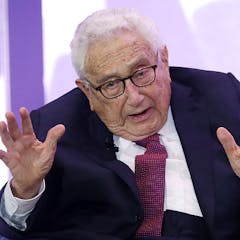
Articles on MPLA
Displaying all articles

The sites provide a rare tangible record of the international solidarity that existed during the Cold War.

He failed to understand that the struggle for justice and freedom in southern Africa was changing the world - and diplomacy itself.

The loss of a two-thirds majority in parliament would be seen as a significant defeat for the MPLA.

Angola’s 2022 election is the first in which citizens born after the war are old enough to vote.

The political skill to turn situations to his advantage, rather than any ability to mobilise people, made Angolan president José Eduardo dos Santos one of Africa’s longest-serving leaders.

Dos Santos died as he had lived and governed: in silence. His silence, and what he accomplished with it, is his most enduring legacy.

The optimism Angolan president João Lourenço’s election generated four years ago has dwindled as electoral promise after another have failed to materialise.

The Angolan political elite lost an extraordinary opportunity to improve significantly the country’s constitution.

Angola needs a mixed electoral system. This would promote accountability through the direct election of representatives from constituencies.

A new book explains the manifestations of the oil curse in Nigeria and Angola since independence.

Citizens have been denied their right to elect officials at the grassroots and this has allowed the central government to maintain rigid control of the country’s regions.

No other photographer in southern Africa has documented war in the way that John Liebenberg did. He captured the life and the conflict of both sides in his body of work.

The Portuguese colonisers were not the only ones who could use radio for control. A new book tells how popular radio broadcasts from Angola’s liberation fighters were used as weapons in the struggle.

The euphoria that accompanied João Lourenço’s new presidency has ebbed away amid the stark realities of a profoundly dysfunctional political economy.

Southern Africa’s liberation movements have been losing popularity and confronting a crisis of legitimacy.

Angola’s recent election results showed the ruling MPLA losing support across the country. If opposition claims are to be taken seriously, the losses could be more severe than they appear.

Angola’s president-elect, João Lourenço, has a reputation for relative probity. But, he’s unlikely to rock the boat as Eduardo dos Santos remains party chairman.

For a military battle whose outcome is still hotly contested 30 years later, the impact was so remarkably clear – independence for Namibia, peace for Angola and the death knell for apartheid.

Portugal used radio propaganda in its colonies in the 1960s against local liberation movements. Decades later there are still lessons to be learned for occupying armies from their failed strategies.
